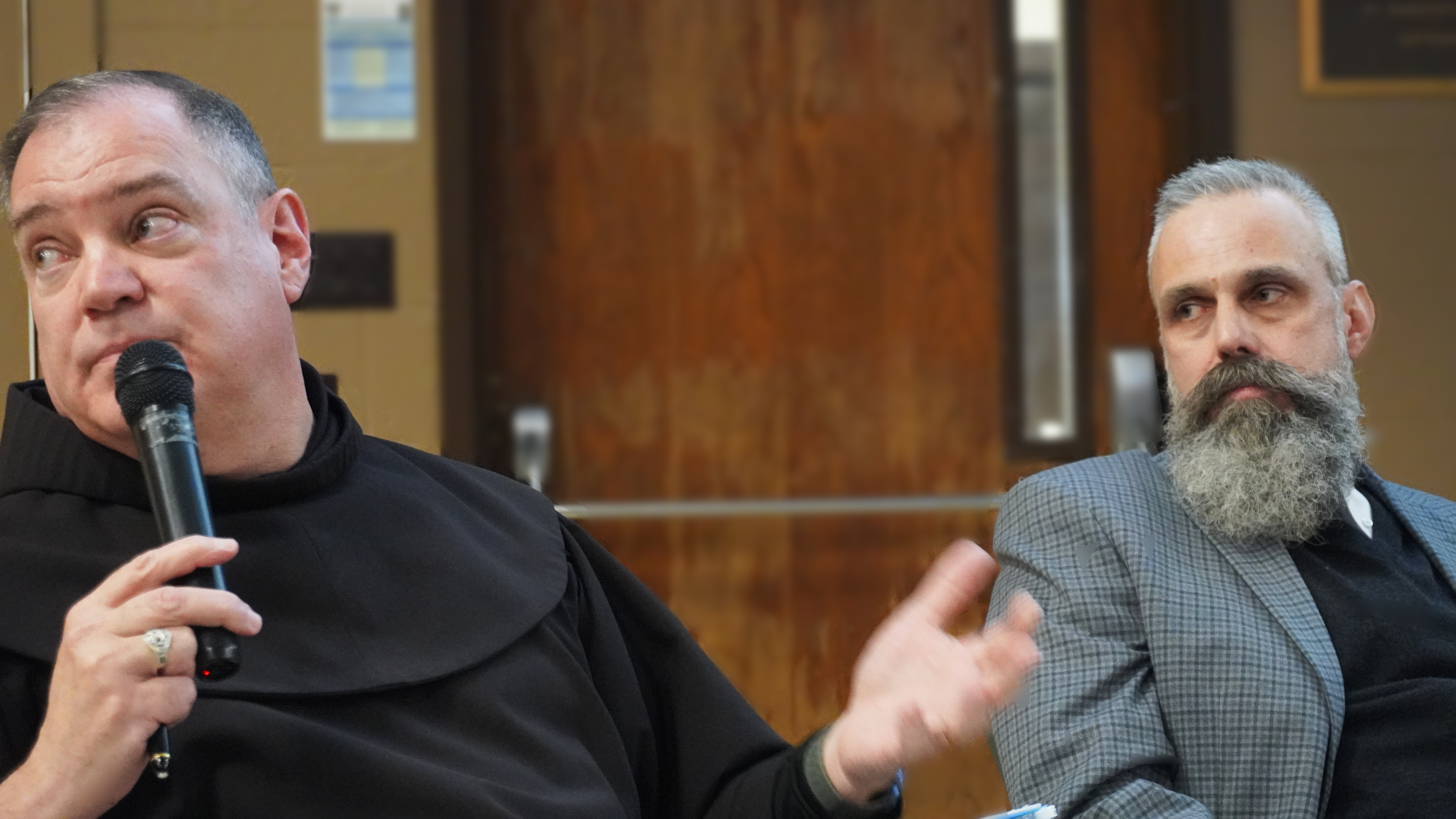By Diana McElfresh
Editor-In-Chief
Students in Chris Stanley’s religious texts classes have been given the opportunity to attend the same lecture for the past 15 years.
Stanley, Ph.D., professor of theology, has offered each semester a question-and-answer period with Zahid and Durriya Khairullah, Ph.Ds., professors of management and marketing, respectively. The Khairullahs, a married couple originally from India, use the lecture period to discuss their shared Islamic faith.
The pair also use the time to clear up various misconceptions regarding women’s role in Islam.
This year, the class, along with Bob Donius’ class, religious texts and Catholic-Franciscan Heritage classes, gathered in the Dresser Auditorium in the Murphy Professional Building.
Durriya first explained that many passages from the Qur’an can be interpreted in different ways.
“When you try to translate anything from the original language, things get lost in translation,” Durriya said.
She showed passages from the Qur’an that clearly demonstrated women’s equality to men; in fact, she noted, Eve was not the sole person to blame for the fall of man.
“Women [are] not to be blamed for the fall of man, according to the Qur’an,” Durriya said. “Both Adam and Eve were seduced by Satan, and both of them ate the forbidden fruit.”
She also recounted to students that the Prophet Muhammad allowed his wife, Khadija, who had been a businesswoman before their marriage, to continue operating her business even in their marriage.
Even the extent to which a woman should cover herself isn’t fully addressed in the Qur’an, Durriya said.
“There is no verse in the Holy Qur’an that talks about covering [a woman’s] face,” she said.
She explained that the tradition of Muslim women covering their faces with a niqab or burqa originally came from the Ottoman Empire, and that it is really a cultural preference rather than a religious requirement.
Additionally, “It’s not in the Qu’ran that women can’t be educated,” she said.
The Khairullahs stressed that Islam is a religion of tolerance — “The Qu’ran goes into respecting all religions,” said Zahid.
Durriya noted that Christianity’s Blessed Virgin Mary even has a chapter devoted to her in the Qur’an, and that all Muslim women pray to have a child as holy as Jesus Christ, who they view not as the Messiah, but as a prophet.
Students who attended the question and answer period found it to be an informative, interactive way to understand Islam.
“I didn’t know about some of the traditions [of Islam],” said Kayleigh Heeb, a sophomore education major. “One of the things they explained was the tradition that women could ask for anything they want from their suitor before marriage, and it has to be done or the wedding will not proceed.”
In fact, Durriya said she asked Zahid for a total of $10 — the tradition is generally not used for a woman to squeeze all the money she can out of her husband before her wedding; rather, it is just a formality.
“Students in my [Religious Texts] classes often mention in their final essay that hearing the Khairullahs talk was one of the highlights of the semester,” Stanley said. “They talk about how helpful it was to hear from some actual Muslims rather than just reading about them in the media. It certainly helps to break down stereotypes that many people have about Muslims.”
mcelfrdh14@bonaventure.edu





